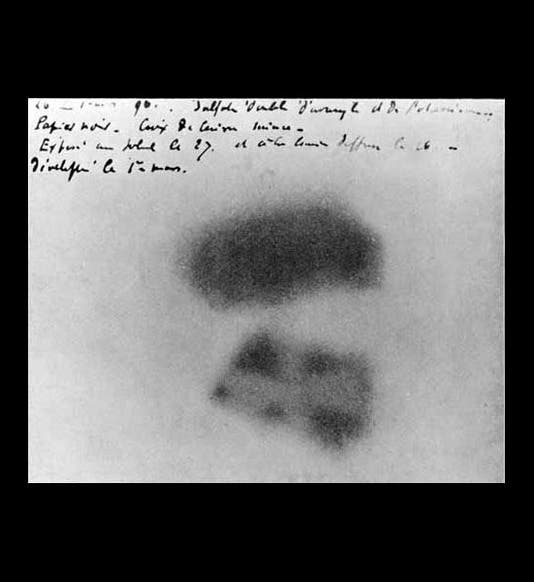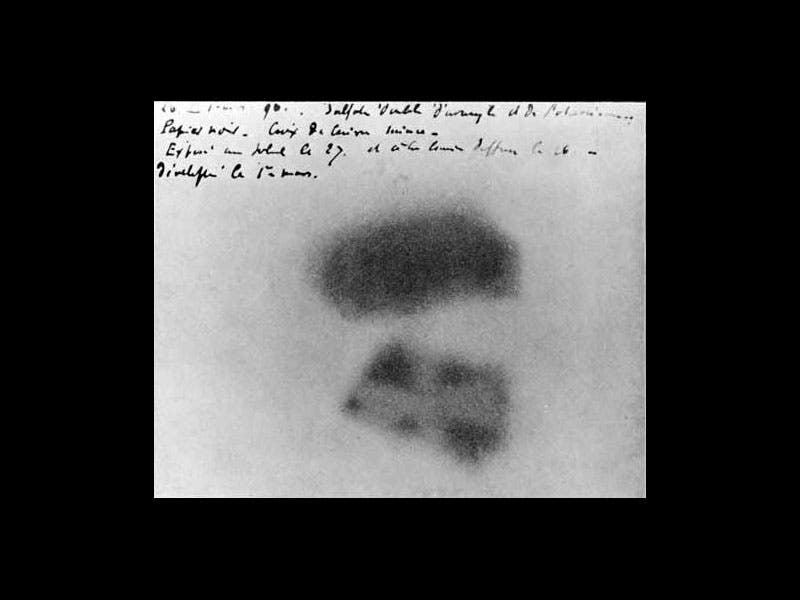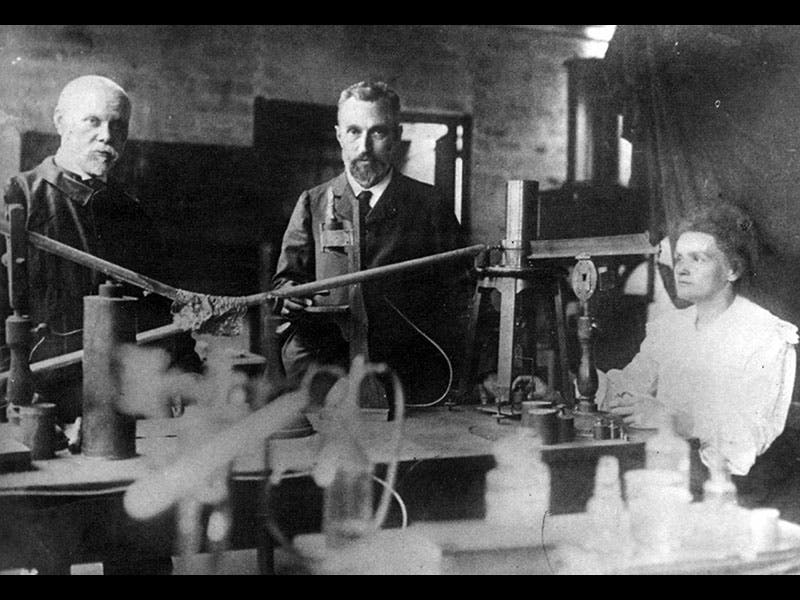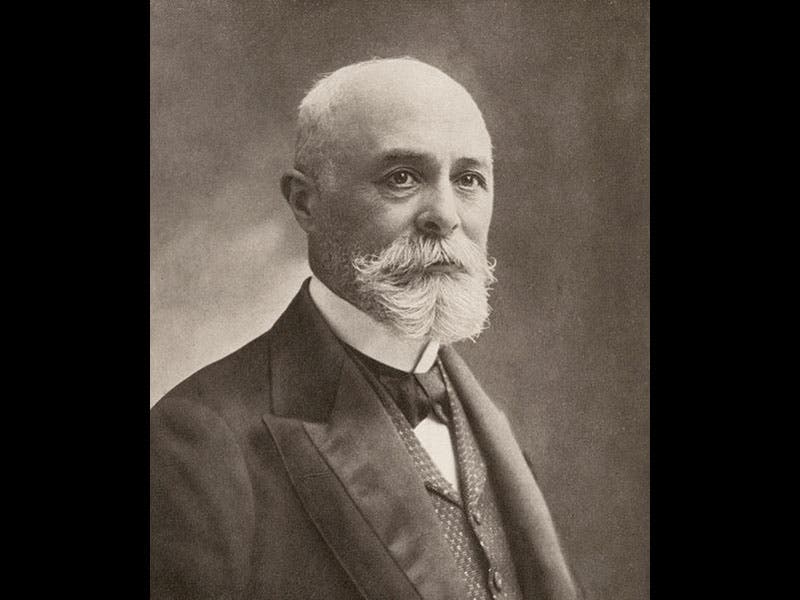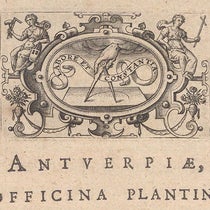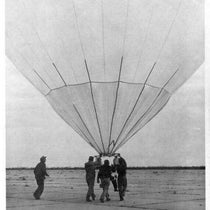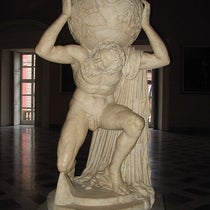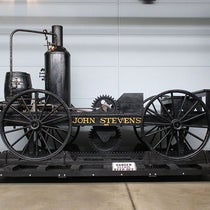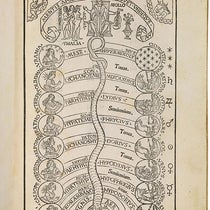Scientist of the Day - Henri Becquerel
Antoine-Henri Becquerel, a French physicist, was born Dec. 15, 1852. In February of 1896, Becquerel was studying the phosphorescence of various minerals, including some salts of uranium. X-rays had just been discovered the month before, and Becquerel was trying to see if phosphorescent materials produced X-rays. Accordingly, he was exposing materials to the sun, making them glow, and seeing if they gave off rays that would affect a photographic plate wrapped with paper. One day the sun failed to show, so he stuck his specimens, still sitting on the paper-wrapped plate, in a drawer. When he developed the plate, he found that there were images on the plate, even though both plate and samples had been in total darkness (first image). The uranium salts were giving off some kind of invisible rays that were penetrating the paper. Becquerel had discovered radioactivity. He announced the results the very next day, on Mar. 2, and by May he was able to state that it was the uranium, and not the other elements in his specimens, that was producing the mysterious radiation. All of Becquerel’s papers on radioactivity appeared in the Comptes Rendu (Proceedings) of the French Academy of Sciences, and we have them all in the Library’s serials collection.
Two years after Becquerel made his momentous discovery, Marie and Pierre Curie discovered another radioactive material, radium. The second photograph shows Becquerel visiting the Curies’ lab. In 1903, Becquerel and the Curies shared the Nobel Prize in physics for their discoveries. The final portrait depicts Bequerel in his middle fifties. He died shortly thereafter, in 1908.
Dr. William B. Ashworth, Jr., Consultant for the History of Science, Linda Hall Library and Associate Professor, Department of History, University of Missouri-Kansas City. Comments or corrections are welcome; please direct to ashworthw@umkc.edu.

